While most everyone appreciates the experience of buying shiny, brand-new objects, in the case of certain items, it pays to buy used.
Did you just wince a little? Do you hate the words “pre-owned” and “secondhand,” too? I get it. Buying items that already have one owner has a stigma for a reason. You don’t always know what you’re getting, but you do know that at least a little of that item’s usable life has been … well, used.
Still, there are several advantages to buying secondhand. To start, you can save a substantial amount of money. It’s also better for the environment and you can sometimes find high-quality, vintage items that are hard to come by in stores these days.
I’m not suggesting you buy everything used. Some things should be bought new. But if you’re looking to save money (and the environment!), there are certain types of objects you should purchase secondhand every time. Today, I’m going to go over some top items you should always buy used.
Featured Financial Products
Table of Contents
Don’t Buy These Items New

There are times to be frugal, but there are also times where spending up pays off. This list very much focuses on the former.
When you’re shopping for the items on this list, always be thrifty. Buying new almost guarantees you’ll be wasting additional money that could be put to better use.
Do you want to get serious about saving and planning for retirement? Sign up for Retire With Riley, Young and the Invested’s free retirement planning newsletter.
1. Textbooks

If you think regular books are costly, go check out the price tag on a college textbook or two. Hard-copy textbooks sport an average price between $100 to $150 each. Multiply that by the number of classes you’ll take throughout a college career, and the result is no small sum.
No wonder, then, that 90% of professors agree that textbooks and course materials cost too much money for students, according to data published by the Education Data Initiative.
In some cases, digital course materials might be available. But that’s not always an option, and even when it is, it’s sometimes every bit as expensive. Plus, some students learn better by highlighting and underlining key points in a physical book.
No, the way for college students to go thrifty, if the option exists, is to buy secondhand. While you can occasionally buy used college textbooks directly from other students, you’re more likely to find what you need at a university bookstore. Better still, those same bookstores will often buy your old textbooks back when you’re done, allowing you to recoup a bit more money.
“But don’t I need the newest version?” Usually, the answer is no. While publishers commonly release new textbook editions every year, most of them have minimal changes or additions. However, when in doubt, ask your professor which version you must have.
Related: 10 Best Fidelity Funds to Buy
2. Baby Clothes + Shoes
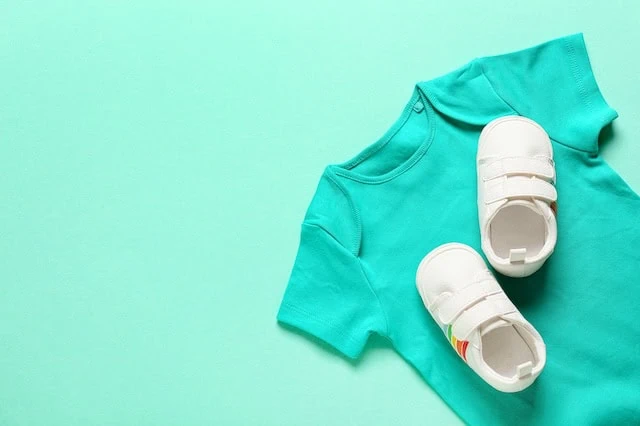
Those onesies calling your baby’s name at the store might look adorable, but there is a high chance they’ll get little to no use.
Some babies never fit into infant sizes and grow straight into larger sizes. No matter what size they come out, babies grow as fast as weeds. While there is a lot of variation, babies often go up a clothing size roughly every 10 weeks.
Also, they don’t walk right away, so babies don’t need shoes … but they can be gosh darn cute. If you want your baby to wear them, keep in mind that in the first year alone, their feet grow an average of five sizes.
It’s not worth buying new items that will be used so briefly, so you can do well to buy baby clothes and shoes pre-owned. And remember: Children are messy, too. Your baby might be one blowout diaper or throw-up session away from destroying their outfit. But the financial impact won’t be so bad if that outfit is secondhand.
Related: 11 Best Vanguard Funds to Buy
3. Wedding Accessories

Want to see a magic trick? Take an object, add the word “wedding” to it, and watch how it magically doubles or triples in price.
A wedding is (usually) a once-in-a-lifetime event. As such, people are often willing to splurge on weddings more than any other event. Retailers take advantage of this, frequently charging more for an item designed for wedding usage than it could otherwise fetch.
For this reason, you should try to buy some or all of your wedding accessories, such as jewelry, hair pieces, and fake flowers, used.
Chances are those items were only used one time and could still be in excellent condition. Yet often, you can get these items for a fraction of the original cost.
According to The Knot’s 2023 Real Weddings study, the average combined wedding ceremony and reception cost in 2023 was $35,000. Engaged couples can help bring that number down a bit by purchasing secondhand.
Related: 9 Best Fidelity Index Funds to Buy
Featured Financial Products
4. Holiday Decor
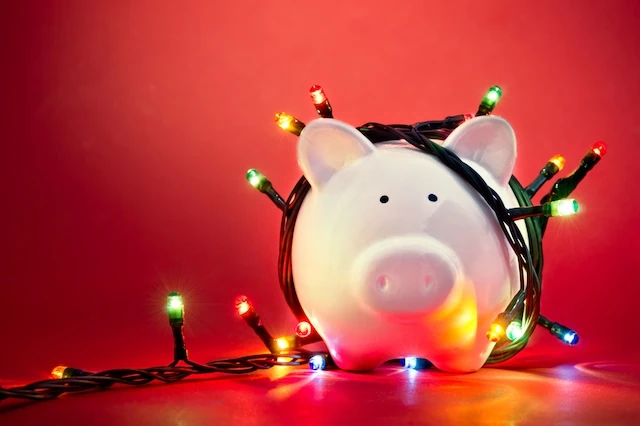
Do you love decorating your home for every season and holiday? You’re probably not alone.
A Rocket Homes survey found that the average American spends about $269 on holiday decorations every year, while those who are married with children spend an average of $390.
If your number frequently comes in much higher, you don’t necessarily need to cut down on how much you buy. Instead, consider purchasing some of your holiday decor used.
You can get your decor far cheaper by purchasing secondhand at thrift stores, garage sales, and online marketplaces. Plus, buying pre-owned decorations is more sustainable. Many decorations are made mainly of plastic or metal and hold up well over time.
Better still: You can take your savings and spend the excess on special presents or holiday activities with your family.
Related: 10 Items You Should Always Buy New
5. Workout Equipment
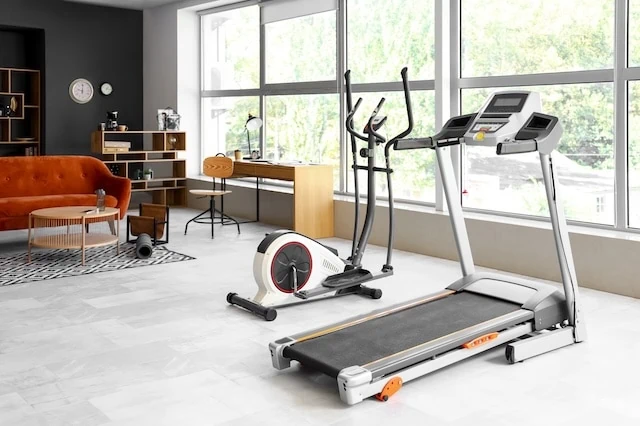
People often set overly ambitious fitness goals, and many of those goals are laid out around New Year’s Eve. Indeed, a 2023 Forbes Health/One Poll survey found that the most popular New Year’s resolution for 2024 was fitness.
Fitness goals are good. Unfortunately, when people set the bar too high, they quickly lose motivation. That’s unfortunate no matter the situation, but it’s financially painful if they quit after buying a bunch of expensive workout equipment and/or exercise accessories.
But their pain can be your gain. People who no longer need that workout equipment are often willing to sell it—sometimes at very reasonable prices.
Dumbbells and other weights don’t have expiration dates, and they’re pretty darn hard to break, so you may as well get them secondhand. And while you should be more cautious with any powered equipment, gear like treadmills and stair climbers are typically built to last.
Just make sure that, no matter what you buy, you test it out before going through the trouble of taking it home.
Related: Should I Pay Off My Mortgage Before I Retire?
6. Adult Clothing
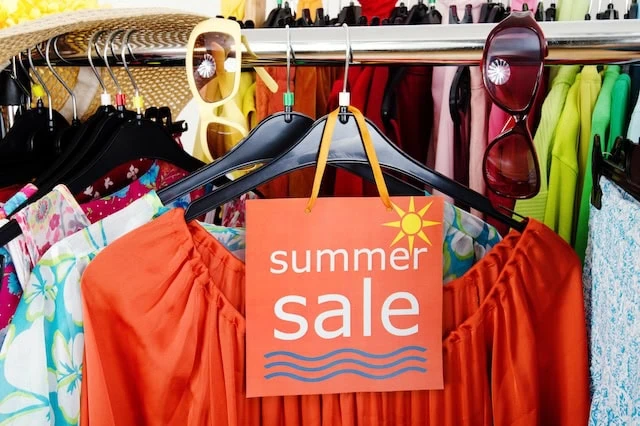
While you might not be able to build a complete wardrobe from used clothing, there are a lot of benefits to buying at least some of your adult clothing secondhand.
The most popular reason people buy pre-owned clothing is to save money. Thrift stores offer pretty great deals, but garage sales and online marketplaces can save you even more.
But that isn’t the only benefit of secondhand clothing.
Some people like the challenge of finding interesting vintage pieces. People who care about animals’ rights will sometimes only buy leather or fur items secondhand so they don’t increase demand for these types of items. Plus, it’s more sustainable than fast fashion.
Related: The 7 Best T. Rowe Price Funds to Buy and Hold
7. Furniture

While “fast furniture” (cheaply made items that usually last one to five years) is common in one’s 20s, there’s a stigma against it once you get older. A 2022 survey by Avocado Green Mattress, conducted by OnePoll, found that more than half of respondents believe it’s only acceptable to own fast furniture in your 20s. And a little under half admit to having judged adults with low-quality furniture.
The problem? Quality furniture is expensive. So if you want sturdy pieces, but you don’t have enough money to pay for them, you have two choices:
1. Stick with fast furniture
2. Buy high-quality secondhand furniture
People don’t just sell furniture when they think it’s on its last legs. People also sell well-kept used furniture because they are moving somewhere smaller or their sense of style has changed. Those without a truck are sometimes willing to give excellent deals to people who will remove these large items from their homes. Just avoid used mattresses unless you know the previous owner, as you don’t want to risk getting bed bugs.
Interestingly, secondhand furniture purchases aren’t just for those short on cash. A YouGov poll found that a higher percentage of high-income earners (40%) are more likely to consider purchasing secondhand furniture than middle-income earners (38%) or low-income earners (35%).
Do you want to get serious about saving and planning for retirement? Sign up for Retire With Riley, Young and the Invested’s free retirement planning newsletter.
8. Pet Items
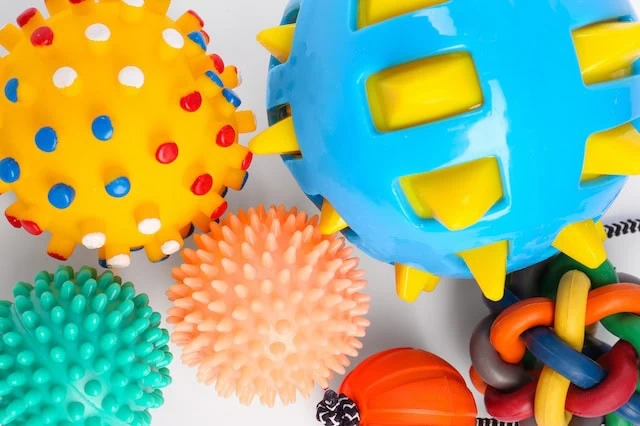
People love to spoil their pets. According to data from the U.S. Bureau of Labor Statistics Consumer Expenditure Surveys, consumers spent more than $100 billion on pet-related costs in 2021. That’s more than they spent on alcoholic beverages ($73.8 billion) and women’s clothing ($87.9 billion).
I’m absolutely in favor of treating pets well and buying them plenty of toys. I’m just saying, where it makes sense, buy secondhand toys. (Just think about how excited dogs get about free sticks. They don’t care about how much their toys cost.)
When a pet passes away, the owner is left with a lot of items they don’t need. While some owners throw these items away, others sell them at a low cost or even give them away for free. And sometimes, owners will sell treats or toys their current, very alive pets are simply uninterested in. Either way, those are sound opportunities for thrifty pet owners.
So, get your pet some pre-owned items, and spend the savings on a dog park membership or cat spa day.
Related: The 13 Best Mutual Funds You Can Buy
9. Designer Items
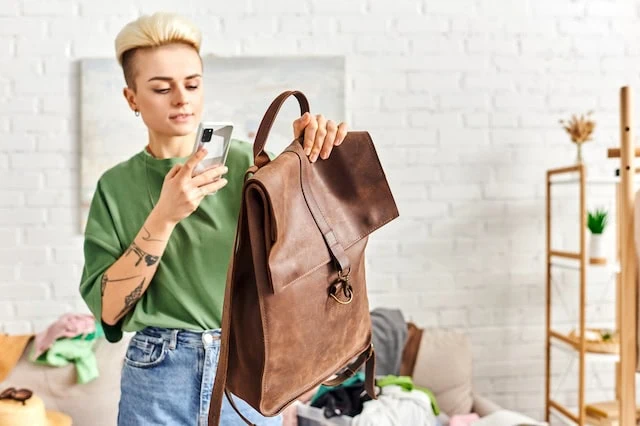
Have you dreamed of owning a Coach purse or Louboutin heels but can’t justify the cost? Treat yourself to a gently used designer item for a fraction of the cost.
Future Market Insights predicts, for instance, that the secondhand bag market will grow from $6.3 billion to $11.5 billion between 2023 and 2033. And Business Research Insights states that the global secondhand luxury goods market will jump from $26.2 billion in 2021 to $78.3 billion by 2031.
If a Rolex watch is still ticking or a Prada bag is still fit to hold items, you can save an insane amount of money buying these items used. Even if they are a bit worn out, people won’t know it was because someone else used those items.
And if you feel any shame, remember: Even celebrities often don’t buy designer items at full price. Red carpet clothes, jewelry, and shoes are typically borrowed.
So rather than spend as much money as you do for three months of rent on a handbag, go ahead and get a pre-owned one.
Related: 9 Financial Mistakes That Can Quickly Drain Your Retirement Savings
10. New Hobby Accessories

Hobbies are an important part of life. Spending time on a hobby can reduce stress, lower your blood pressure, and improve relationships.
However, it can be challenging to know which activities you’ll actually enjoy until you’ve tried them out for a while. Thus, it’s common to start a new hobby, only to realize within weeks or a couple months that it’s not a good fit.
If you stop a hobby that is free or affordable, great! But the problem arises when you realize you hate a hobby only after you’ve purchased expensive hobby accessories.
LendingTree data shows that around 60% of people in the United States started a new hobby during the pandemic. Unfortunately, it caused over half of those people to take on credit card debt. Now imagine how many of those people felt once they realized those hobbies just weren’t up their alley.
If you’re trying out a new hobby that requires accessories—especially those that require expensive gear—buy used items. Why spend thousands of dollars on a new set of golf clubs only to realize a week later that you can’t stand playing?
And once you determine a hobby has stuck, you can always upgrade your accessories.
When you’re trying out a new hobby, especially an expensive one, buy used items. You don’t want to spend thousands of dollars on a brand-new golf club set just to realize a week later that you hate golfing. Once you know a hobby has stuck, you can always upgrade your accessories.
Featured Financial Products
Related: The Best Fidelity ETFs for 2025 [Invest Tactically]

If you’re looking to build a diversified, low-cost portfolio of funds, Fidelity’s got a great lineup of ETFs that you need to see.
In addition to the greatest hits offered by most fund providers (e.g., S&P 500 index fund, total market index funds, and the like), they also offer specific funds that cover very niche investment ideas you might want to explore.
Related: 13 Best Long-Term Stocks to Buy and Hold Forever
As even novice investors probably know, funds—whether they’re mutual funds or exchange-traded funds (ETFs)—are the simplest and easiest ways to invest in the stock market. But the best long-term stocks also offer many investors a way to stay “invested” intellectually—by following companies they believe in. They also provide investors with the potential for outperformance.
So if you’re looking for a starting point for your own portfolio, look no further. Check out our list of the best long-term stocks for buy-and-hold investors.
Related: 10 Best Monthly Dividend Stocks for Frequent, Regular Income
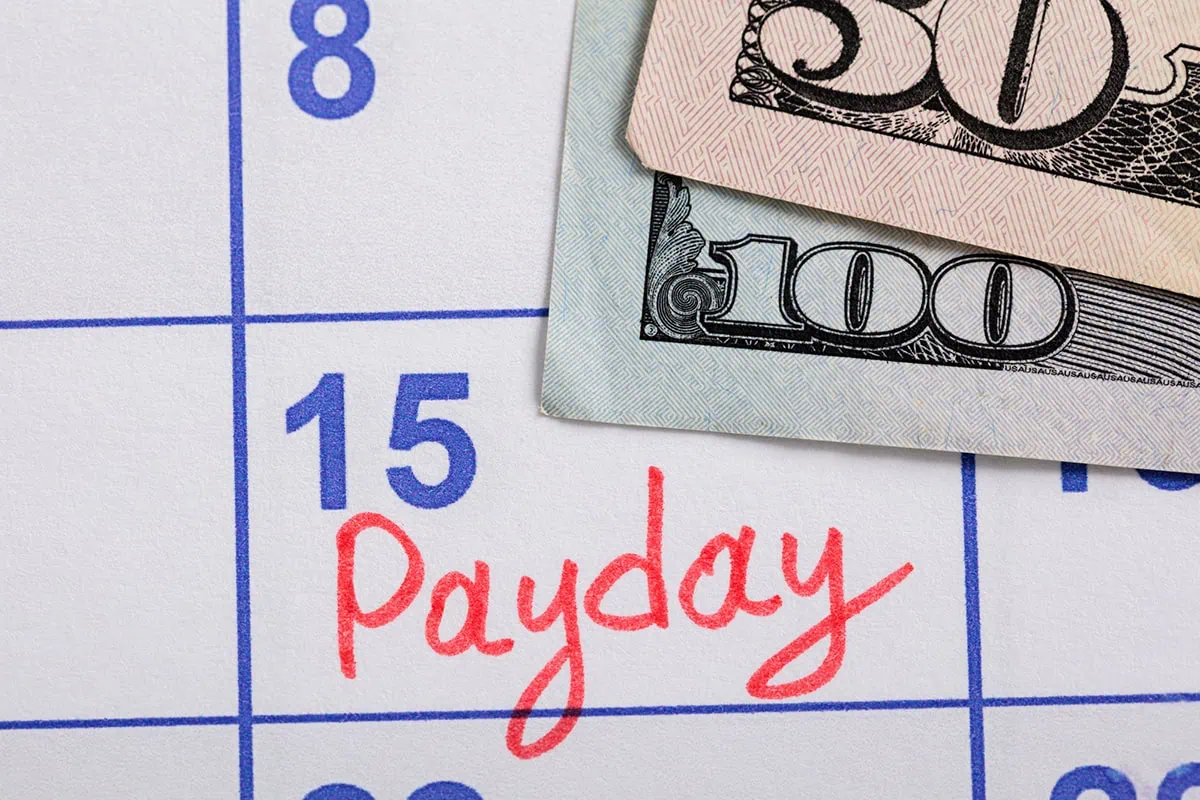
The vast majority of American dividend stocks pay regular, reliable payouts—and they do so at a more frequent clip (quarterly) than dividend stocks in most other countries (typically every six months or year).
Still, if you’ve ever thought to yourself, “it’d sure be nice to collect these dividends more often,” you don’t have to look far. While they’re not terribly common, American exchanges boast dozens of monthly dividend stocks.
Please Don’t Forget to Like, Follow and Comment
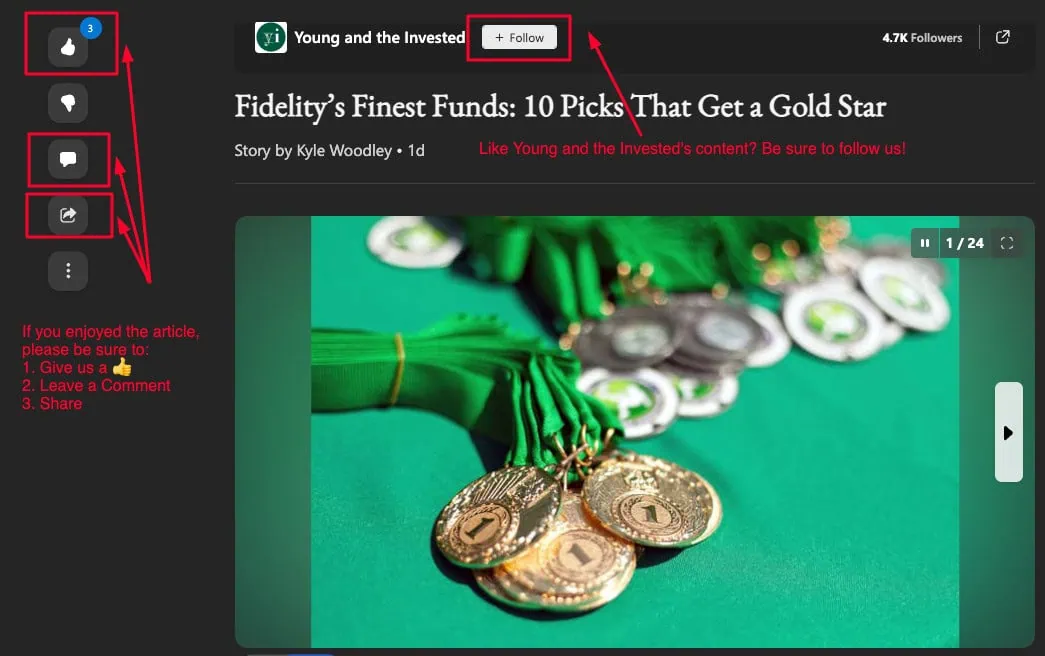
Did you find this article helpful? We’d love to hear your thoughts! Leave a comment with the box on the left-hand side of the screen and share your thoughts.
Also, do you want to stay up-to-date on our latest content?
1. Follow us by clicking the [+ Follow] button above,
2. Subscribe to Retire With Riley, our free weekly retirement planning newsletter, and
3. Give the article a Thumbs Up on the top-left side of the screen.
4. And lastly, if you think this information would benefit your friends and family, don’t hesitate to share it with them!






